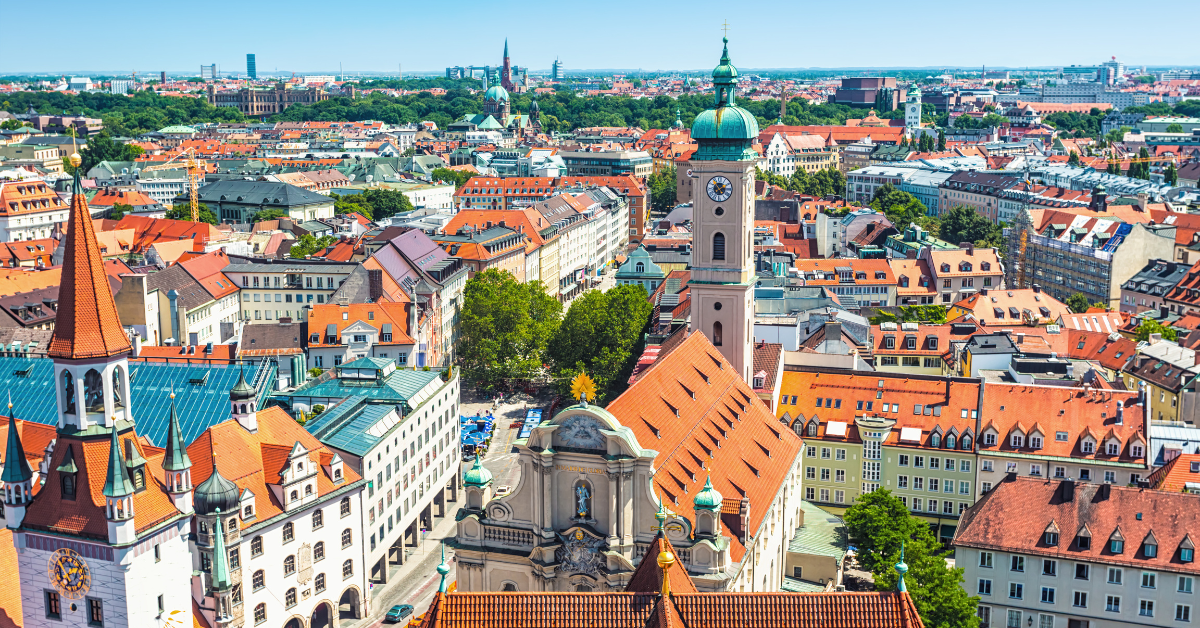Munich, located in southern Germany, is known as a city where art, tradition, and sports coexist in harmony. Its Japanese kanji form “民顕” comes from a Chinese phonetic translation, reflecting a time when foreign place names were written in kanji to express familiarity and respect. This article explores the history behind “民顕” and delves into how Japanese people emotionally and culturally perceive Munich.
The Kanji “民顕” and Its Origin
The kanji “民顕” (Minxian) derives from the Chinese phonetic transliteration of “München.” From the Meiji era through early Shōwa, foreign place names were often written using kanji that emphasized phonetic resemblance rather than literal meaning. During that time, several versions, such as “米寧” and “密顕,” were also considered before “民顕” became more common in print.
Evolution of Munich’s Representation
| Period | Representation | Reason | Notes |
|---|---|---|---|
| Meiji to early Shōwa | 民顕 | Based on Chinese transliteration | Prioritized phonetic similarity |
| Postwar era | ミュンヘン (Katakana) | Based on pronunciation | Standardization of notation |
| Present day | München (German) + Katakana | Internationalized form | Used in guides and tourism materials |
Although “民顕” is rarely used today, it remains a valuable record that reflects Japan’s linguistic policy and cultural exchange in the modernizing period.
―――――――――――――――――――――――――
Japanese Perceptions of Munich
For many Japanese, Munich evokes an image of “a calm and artistic city.” The orderly streets, safe environment, and abundant greenery contribute to a sense of comfort and peace. Traditional events such as Oktoberfest and Christmas markets also reinforce its reputation as a warm, welcoming European city.
Common Impressions of Munich Among Japanese
| Impression | Description | Japanese Perception |
|---|---|---|
| Arts and Culture | Museums, theaters, and music festivals | Elegant and refined |
| Tradition and Festivals | Oktoberfest, Christmas Markets | Warm and familiar |
| Living Environment | Clean and green | Safe and relaxing |
| Sports | FC Bayern Munich | Energetic and proud |
| Education and Technology | Universities and research centers | Intellectual and advanced |
Overall, Japanese people regard Munich as a city where tradition and modernity coexist beautifully.
―――――――――――――――――――――――――
A City of Culture and History
Munich, once the capital of the Kingdom of Bavaria, has long been the center of art, architecture, and music in Germany. Its renowned museums, such as the Alte Pinakothek and Neue Pinakothek, hold masterpieces from the Renaissance to the modern era.
Walking through the city, one encounters a harmonious blend of Renaissance architecture and modern design, embodying German order and aesthetic precision. Munich is also home to the headquarters of BMW, symbolizing the city’s unique balance of tradition and innovation.
Munich’s Cultural Highlights
| Field | Representative Sites and Events | Characteristics |
|---|---|---|
| Art | Alte Pinakothek, Lenbachhaus | Exhibits from the Renaissance to contemporary art |
| Music | Bavarian State Opera | One of the world’s top three opera houses |
| Architecture | Frauenkirche, Munich Residenz | Blends historical and modern structures |
| Science and Technology | Deutsches Museum | World’s largest museum of science and technology |
The city’s cultural life is not just a tourist attraction but an integral part of daily life for its citizens.
―――――――――――――――――――――――――
Munich as a Sports City
Munich is not only a cultural capital but also a hub of sports excellence. The world-famous football club FC Bayern Munich has become a symbol of the city’s pride. Its home stadium, Allianz Arena, glows red at night and serves as an iconic landmark of modern Munich.
The 1972 Munich Olympics also played a key role in shaping the city’s identity. The Olympiapark remains a lively gathering spot where locals enjoy jogging, cycling, and open-air events, reflecting Munich’s healthy and active lifestyle.
Munich’s Sports Culture
| Sport Type | Team or Facility | Characteristic |
|---|---|---|
| Football | FC Bayern Munich | One of Europe’s strongest and most successful clubs |
| Athletics & Swimming | Olympic Park | Harmony between sports and nature |
| Skiing & Mountaineering | Gateway to the Alps | Popular destination for winter sports |
| Local Fitness | Running along the Isar River | Reflects the citizens’ health-conscious lifestyle |
In Munich, sports and culture are deeply interwoven into everyday life, making the city vibrant year-round.
―――――――――――――――――――――――――
The Japanese Visitor Experience
Japanese visitors often describe Munich as “calm, safe, and inspiring.” The city’s aesthetic charm, punctual public transport, and the politeness of its residents leave lasting impressions.
Emotional Stages of Japanese Visitors
| Stage | Emotion | Reason |
|---|---|---|
| Before visiting | Anticipation and admiration | Interest in its blend of art and nature |
| During stay | Comfort and amazement | Clean environment and kind people |
| After return | Satisfaction and desire to revisit | Deep cultural and emotional fulfillment |
For many, Munich stands out as a city where serenity and passion coexist, offering a distinct experience unlike any other European destination.
―――――――――――――――――――――――――
The Cultural Significance of “民顕”
The kanji “民顕” carries both phonetic and symbolic meaning. “民” means “people,” and “顕” means “to shine” or “to reveal.” Together, they can be interpreted as “a city where people’s lives shine brightly.” This poetic coincidence mirrors the warmth and openness of Munich’s community.
Although this kanji form has fallen out of use, it embodies Japan’s effort to understand and express foreign culture through its own linguistic framework. It is a beautiful example of how sound and meaning can harmonize unintentionally to reflect cultural depth.
―――――――――――――――――――――――――
Conclusion
The kanji representation “民顕” is more than a linguistic artifact—it is a symbol of cross-cultural exchange between Japan and Europe. Today, Munich continues to thrive as an international city where art, culture, sports, and innovation coexist.
Just as the meaning of “民顕” suggests, Munich remains “a city where the lives of people shine brightly,” leaving a lasting impression on all who visit.






